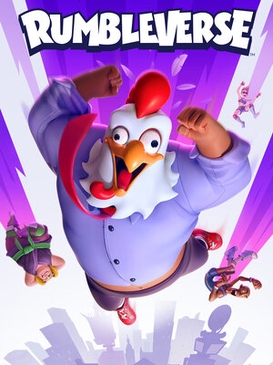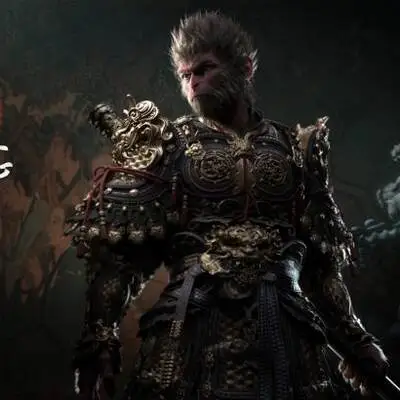
The Legend of Zelda: Tears of the Kingdom review – pure magic
Since I first hit start on Tears of the Kingdom two weeks ago, scarcely a minute has passed when I was not either playing it, or wishing I was playing it. I am honestly slightly annoyed to be taking time away from it to write this review.
I am a grown 34-year-old woman and video games rarely get their hooks into me the way they did when I was 8, or 18, and relatively free of responsibilities. But now and then, every few years, I play something that reminds me that video games are kind of magic. They can transport you somewhere else. They can make time disappear. They can, sometimes, immerse you so totally in their worlds that they can make you see the real world a little differently.
You begin as a semi-naked elven guy with a magical arm, stuck on an island in the sky. Tens of hours later, you are the same elven guy, now clothed in quirky fashions that you’ve found in caves or bought from artisans in far-flung villages, carrying around a hodgepodge arsenal of amusing weapons that you’ve scavenged from ruins or fused together from rocks and sticks, and replete with stories about your many misadventures. Tears of the Kingdom gives you a path to follow, if you want to, but I found it impossible to stay on track for long without getting up to shenanigans.
I would set off from a stable to meet up with a village chief, spot a couple of people arguing outside a cave, jump off my horse to investigate and go spelunking. Then I’d come out the other side to see an as-yet-undiscovered sky tower in the distance, batter some monsters on my way towards it (with the help of a flame-throwing shield I spontaneously invented earlier), build a makeshift go-kart out of some parts I found near their camp, ride it halfway up a mountain towards the tower, start a fire to burn up the thorny bushes blocking the entrance, climb the tower, catapult myself into the sky, spot a glowing shrine on a floating islet, glide towards it and get caught up solving the puzzle within … Three hours later I’d somehow be halfway up Death Mountain on the other side of the map, the village chief would still be waiting, and my abandoned horse would still be pawing the ground outside that cave.
Weapons can be combined or even invented in battle. Photograph: Nintendo
The sense of freedom here is intoxicating. The kingdom of Hyrule is vast and full of diversions, and being able to move freely between the skies and the ground down below is a thrill that never wears off. This is the realisation of a promise hinted at by Zelda: Skyward Sword many years ago. But Tears of the Kingdom also offers a hitherto unimagined level of freedom when it comes to how you approach its many challenges. Hero Link’s magic arm lets you pick up, move around and stick together almost anything in the game’s world. Plonk a dazzling seed on your shield and it’ll blind enemies who strike you; fuse a monster eye with your arrow and it’ll seek its target. You can construct rafts or wagons or hot-air-balloons or wonky ladders from things you find lying around. Plentiful mechanical devices – from steering wheels to rockets to springs and fans – power your creations, letting you build planes, go-karts, catapults, almost anything you can think of.
Messing around with self-made contraptions led me to so many unexpected moments of glory, and also hilarity. Almost every time, Tears of the Kingdom answers the question “what happens if I do this?” with “something fun”. Once, trapped in a blizzard in the snowy highlands, I improvised a rocket-powered sled and clung on for dear life as it careened down the hillside, totally out of control. Attaching a fan to my shield out of curiosity resulted in a hilarious run-in with some Bokoblins, in which I simply blew them backwards off the roof of their fort. I misaligned a rocket on a floating platform and accidentally sent myself flying sideways off it, rather than rising majestically into the air as planned.
In combination with Link’s weapons and abilities, this gives you probably four or five ways to approach almost any situation. Trying to get to a shrine on top of a mountain? You could climb it, cooking up a few elixirs beforehand to keep your speed and stamina up. You could stick some balloons to a platform, climb on, light some fires, and rise upwards. You could fuse a rocket to your shield and zoom skywards, then glide towards your destination. You could enter a cave at the base and use Link’s Ascend ability to swim through the ceiling and pop up somewhere else. You could find a chunk of rock that fell from the sky, cling to it, and rewind time so that it zooms back up towards the heavens. It is so creatively empowering, and supremely intellectually satisfying. It doesn’t just guide you towards predetermined solutions; it lets you come up with your own.
‘Every time I think I’ve got a handle on it, it reveals a new expanse.’ Photograph: Nintendo
With all this flexibility comes a lot of complexity. There is fiddliness here that I would be disinclined to put up with if everything else weren’t so peerlessly entertaining. Rotating and positioning objects is annoying, requiring you to hold several buttons at once, and because you can combine anything in your inventory with any other thing, you’re often scrolling through useless monster bits in the middle of a fight, seeking the bomb-flower that you want to fuse to your arrow. I have often thrown a valuable weapon at a cave wall instead of the sticky glowing plant I intended. Perhaps for those raised on Fortnite and Minecraft, all of this will quickly become second nature, but the price you pay for Tears of the Kingdom’s wonderfully open-ended approach is controls that never feel wholly intuitive.
It’s also surprisingly difficult – but then, a lot of the time I was making things difficult for myself because I couldn’t resist the urge to experiment. When I had to fight rather than think my way out of a situation, I was regularly killed in a couple of hits because I’d been too busy messing around to do all that normal video game stuff, such as strengthening my armour or expanding Link’s life-reserve of hearts, or following the story to unlock useful new abilities. After about 20 hours I had to course-correct and spend some time following the road set out before me, rather than repeatedly perishing in dangerous corners of Hyrule. It was not long, though, before I was sufficiently strengthened and back to my distractions, letting the game take me wherever it wanted.


.webp)
.jpeg)

.webp)


